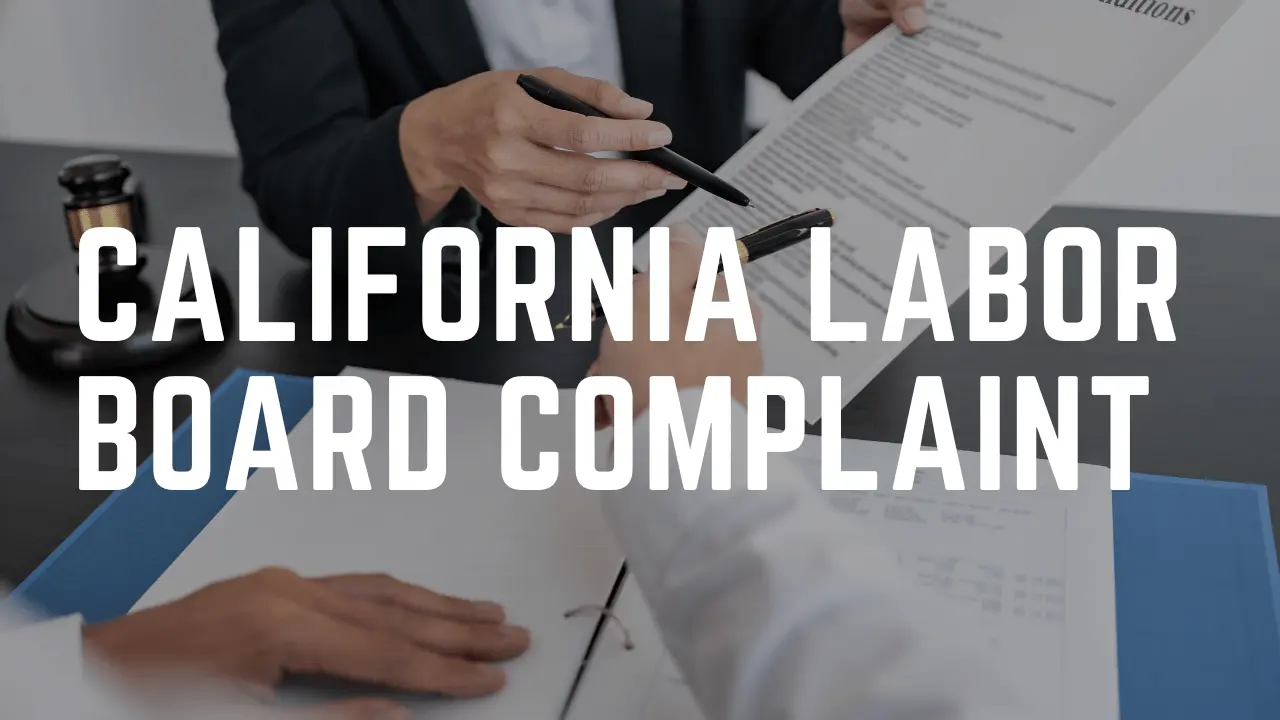Table of Contents
ToggleIf you’re an employee in California, it’s paramount that you understand your rights to meal and rest breaks. These aren’t just nice-to-have perks; they’re mandated by law and your employer must comply.
But the laws governing these breaks can be complex, with different rules for different situations and exceptions that may apply. Are you getting all the breaks you’re entitled to?
Stick around – there’s more to uncover to ensure you’re armed with the necessary knowledge to protect your rights.
Understanding California’s Break Laws
To fully grasp California’s break laws, you must understand that non-exempt employees are entitled to a 30-minute unpaid meal break after working more than 5 hours in a day, with specific regulations for rest breaks, exemptions, employer requirements, legal recourse, and industry-specific rules.
If you’re working over 10 hours, you’re due another 30-minute break, unless your workday doesn’t exceed 12 hours. You’re also eligible for paid 10-minute rest breaks, dotted through your workday. For every 4 hours you work, you’ve earned one. Your employer can’t insist you stay on the premises during breaks, nor can they make you work or be on-call.
Meal and Rest Break Entitlements
Having understood the basics of California’s break laws, let’s now focus on your specific entitlements concerning meal and rest breaks.
As a non-exempt employee, you’re entitled to a 30-minute unpaid meal break if you work more than 5 hours per day. Additionally, for every 4 hours you work, you should receive a 10-minute paid rest break. Your employer can’t require you to stay on premises during these breaks.
If you’re an exempt employee or independent contractor, these requirements mightn’t apply to you. Remember, if your employer fails to provide these breaks, they may owe you additional pay.
It’s important to know your rights and ensure you’re being treated fairly under California’s meal and rest break laws.
Exemptions From Break Laws
While most non-exempt employees in California are entitled to specific meal and rest breaks, there are certain exemptions you should be aware of. Exempt employees, such as those in white-collar positions, aren’t covered by these break requirements. Other exempt professions, like truckers and inside salespeople, still have a right to these breaks.
If you’re an independent contractor, you’ll find that California’s meal and rest break laws don’t apply to you. Unionized employees might’ve different schedules under collective bargaining agreements. Certain industries also have unique rules.
Understanding these exemptions and entitlements can help you know your rights, ensure fair treatment at work, and avoid potential legal issues. Remember, knowledge is power when it comes to employee rights.
Employer Requirements for Breaks
Now that we’ve explored the exemptions from break laws, let’s shift our focus to the obligations of employers regarding these breaks.
As an employer in California, you’re required to provide non-exempt employees with a 30-minute meal break after five hours of work. If the workday exceeds 10 hours, a second meal break is necessary.
You’re also obligated to provide a 10-minute rest break for every four hours worked. These rest breaks should be paid and can’t be combined with meal breaks.
Importantly, you can’t require your employees to remain on-site during these breaks or to work during them.
Failing to adhere to these requirements could lead to legal action and additional compensation owed to your employees.
Consequences of Denied Breaks
Neglecting to provide the legally required meal and rest breaks can lead to serious consequences for employers in California, including potential legal action and additional compensation owed to employees. If you’re an employer who fails to meet these standards, you may be sued by your employees for denying their entitled breaks.
For each denied break, you owe an additional hour of pay. This can snowball into a costly legal battle if a wage and hour class action lawsuit is pursued. Furthermore, individuals acting on behalf of your company can also be held liable for these violations.
During legal proceedings, employees are entitled to interest on unpaid wages. So, ensure your compliance to avoid these repercussions.
Legal Actions for Break Violations
Should you face violations of meal and rest break laws in California, you have the right to take legal action against your employer. If your breaks are consistently denied or interrupted, you’re entitled to compensation.
For each workday that you’re not provided with the required break, your employer owes you an additional hour of pay at your regular rate. If you decide to proceed legally, you can file a wage claim with the California Labor Commissioner’s Office or file a lawsuit against your employer.
Furthermore, if your case is a success, you may also be entitled to interest on the unpaid wages. Remember, it’s important to document all incidents and consult with a knowledgeable employment lawyer to understand your rights better.
Industry-Specific Break Regulations
You might be surprised to learn that in California, several industries have their own specific meal and rest break regulations that deviate from the general rules. For instance, the construction, commercial driving, and motion picture industries all have unique regulations. In baking, healthcare, and manufacturing, tailored rules apply too.
Collective bargaining agreements can override standard meal break laws for unionized employees in certain sectors. It’s crucial for you, as an employee or employer, to understand these specific rules. Non-compliance can lead to legal issues and hefty penalties. Your knowledge of these regulations can ensure a fair and balanced work environment.
Unique Rules for Certain Professions
While understanding industry-specific regulations is crucial, it’s equally important to be aware of the unique meal and rest break rules that apply to certain professions in California.
If you’re a trucker or inside salesperson, despite being exempt, you’re still entitled to these breaks. Healthcare workers can have different rules due to the nature of their work; similarly, certain unionized employees may follow different schedules based on collective bargaining agreements. However, if you’re an independent contractor, these rules don’t cover you.
Conclusion
Don’t let ignorance of California’s break laws cost you precious downtime and hard-earned pay. Understand your rights to meal and rest breaks, know the exemptions, and be aware of your employer’s responsibilities.
If your rights are violated, don’t hesitate to take legal action. Stay informed about industry-specific regulations and unique rules for certain professions.
Remember, you’re entitled to these breaks, so make sure you’re not being short-changed. Take control of your working conditions today.
















